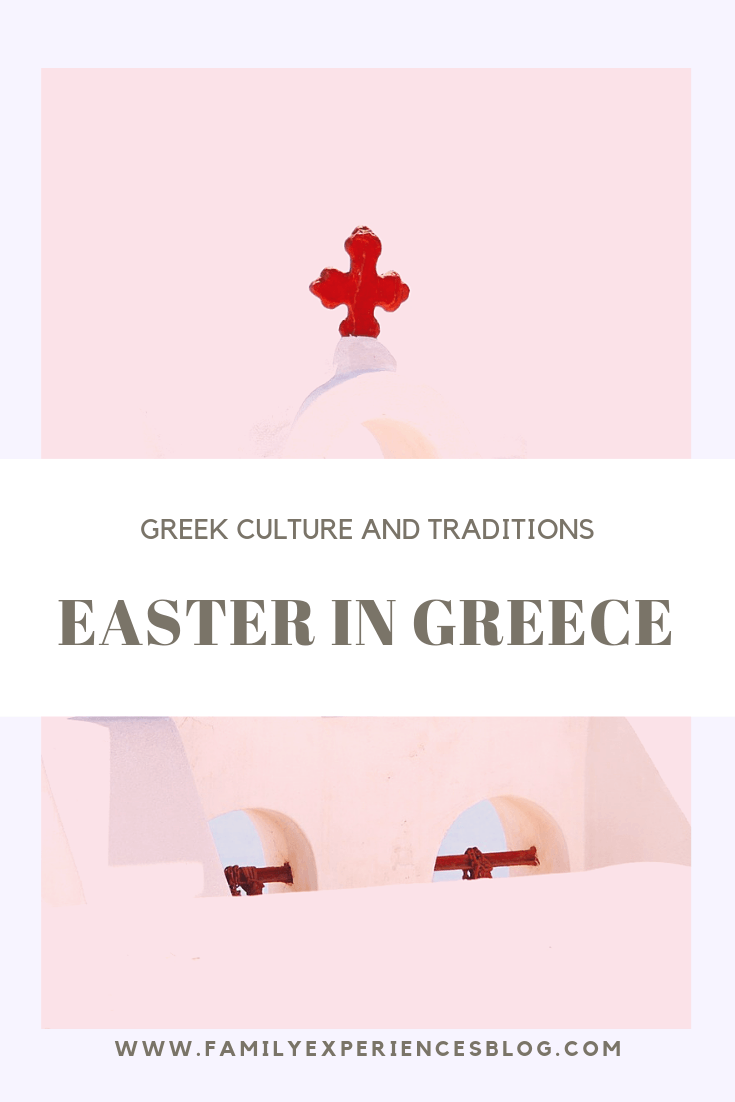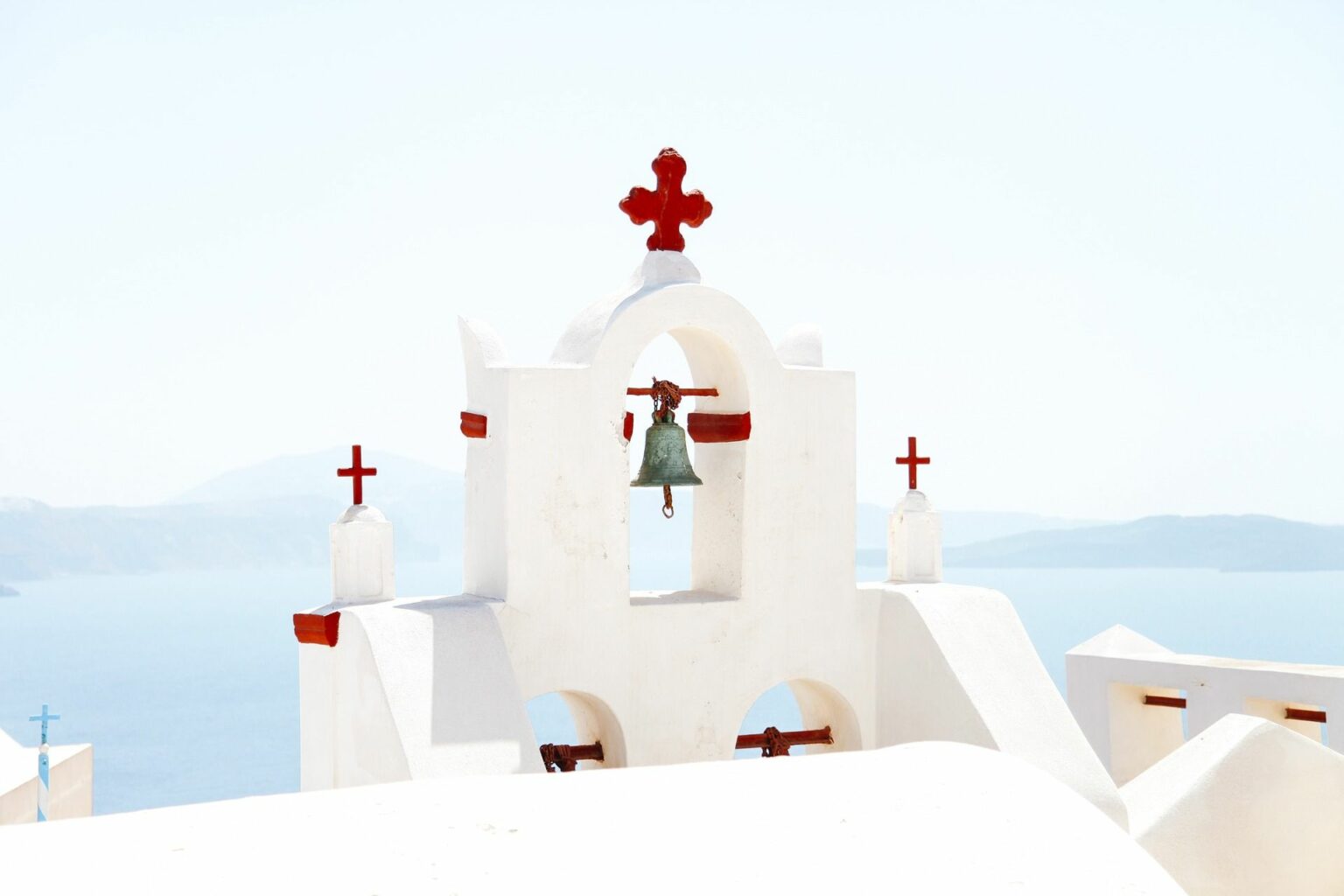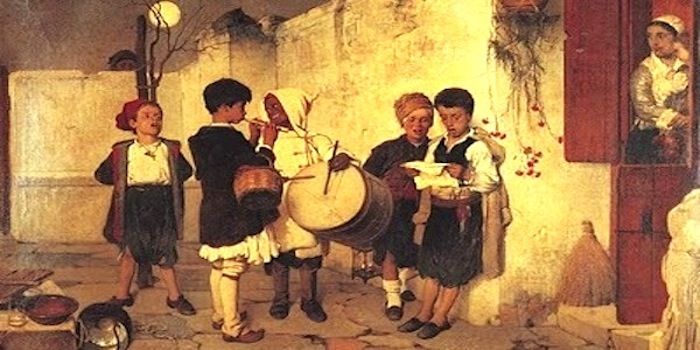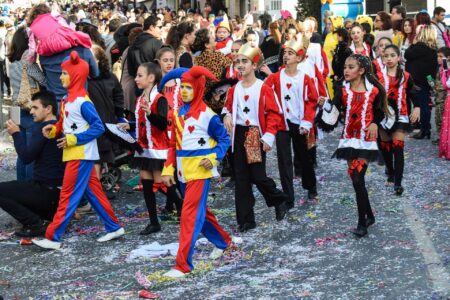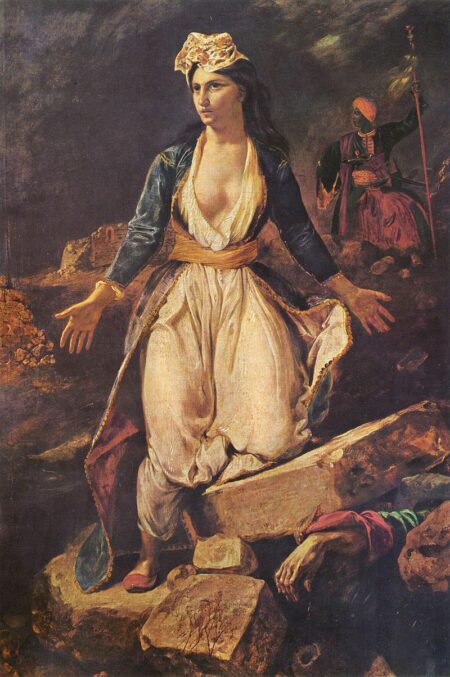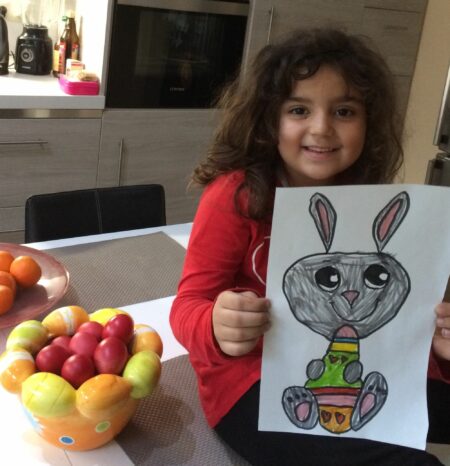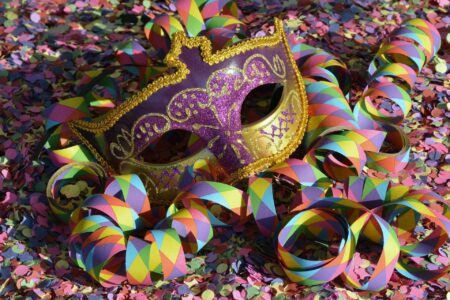Greek Orthodox Easter is the most important religious holiday in Greece. It is also a family celebration full of traditions and festivities. My family respects most of the single Greek Easter traditions. Especially the cracking of the red eggs and eating tsoureki! Find the most important family Easter traditions in this Easter in Greece Guide.
Easter in Greece is magic!
If you are in Greece during the Greek Orthodox Easter, you are very lucky! There is so much to see, taste and experience. Easter is celebrated all over Greece, and each part of the country has its own unique Easter customs. My favorite Easter is in Hydra, you can read more about that special place later on.
When is Greek Easter in 2025
18 Apr, Orthodox Good Friday
21 Apr, Orthodox Easter Monday
Schools are closed and archaeological sites and museums, as well as most supermarkets and shops, have shorter opening hours on Holy Friday and Saturday.
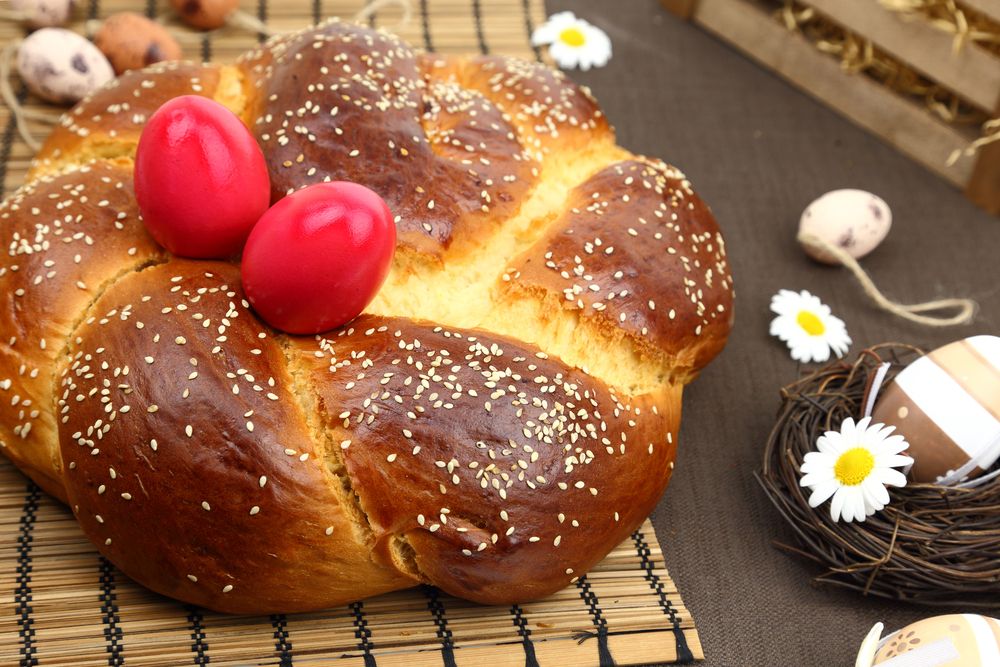
Preparing for Greek Orthodox Easter
Preparations for Easter start weeks in advance beginning with Greek Carnival (the preparation before Lent), followed by Kathara Deftera and the Lent period. The period of Lent is called Sarakosti (Saranta means ‘forty’ in Greek) and one avoids eating meat, fish, milk, cheese and eggs during this time.
Some avoid olive oil too. During the Sarakosti, children in Greece create a doll of paper or dough called Kyra Sarakosti. This is a calendar for Lent counting off the seven weeks of fasting before Easter
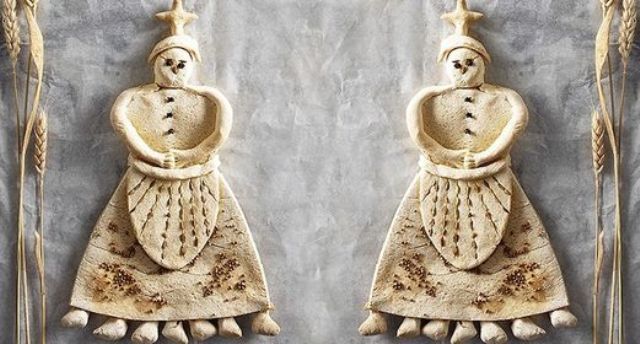
Holy Week of Greek Easter
The last week or Holy Week before Easter is called the Megali Evdomada (Greek for the big or important week)and is full of tradition. This Holy Week starts with Palm Sunday and ends with Easter Sunday. During this week there are special evening services in the Greek churches each evening.
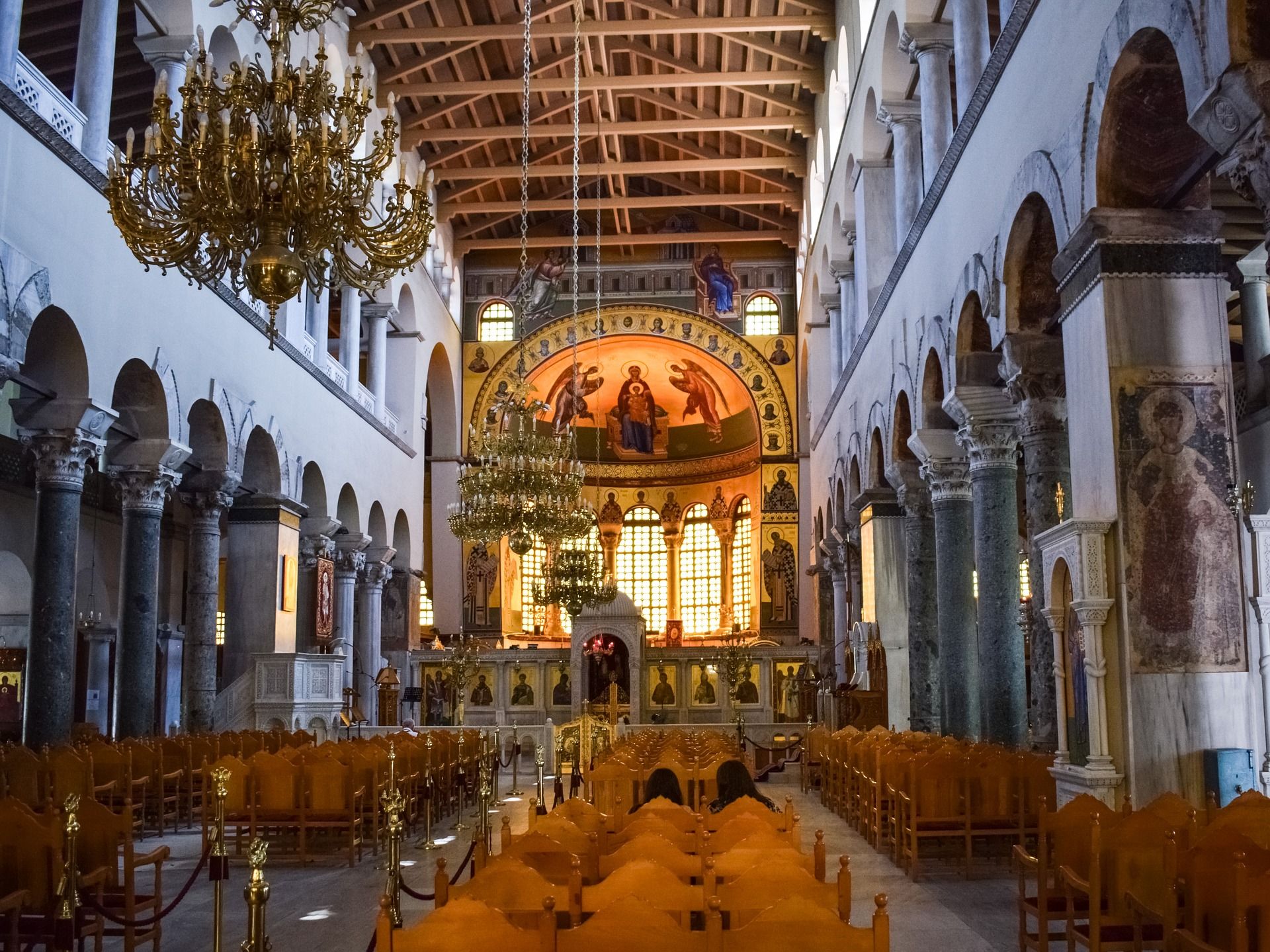
These last days before Easter represent the last days of Jesus life. Besides the rituals inside the church, this also means a change in daily routines. The shops in Greece have special (longer) opening hours during the holy week. Streets and houses are being cleaned up, walls and pavements are painted and churches are decorated.
Dyeing the Red Greek Easter eggs on Holy Thursday
In Greece, red Easter eggs are traditionally dyed on Holy Thursday, but they can be done on any day leading up to Easter Sunday. They are the first food eaten after the strict fasting of Lent in some families, while others enjoy them after dinner when everyone is gathered around the table to play the egg cracking game.
They are lovingly made, either with onion skins or dye, and then woven and baked into a tsoureki (three-braided Easter bread signifying the Holy Trinity), used as table decorations, and are the key piece to a fun game called tsougrisma, which tests the eggs’ strength—and perhaps the players’ strategy.
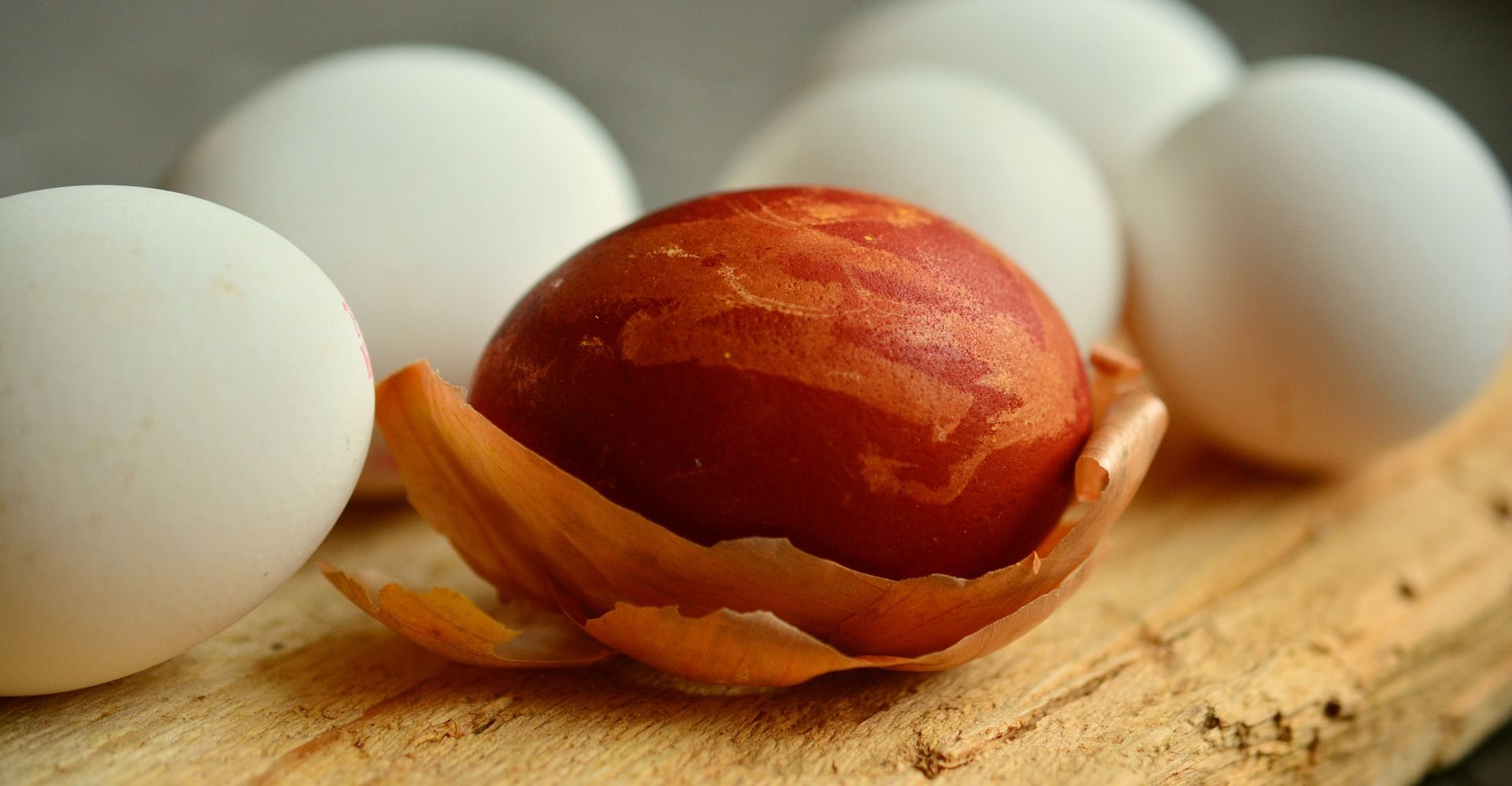
Why do Greek Orthodox crack red eggs at Easter?
The red color of the eggs symbolizes the blood and sacrifice of Christ on the cross and the egg symbolizes rebirth. The first red egg that is dyed is considered to be the egg of the Virgin Mary and is saved in the home for protection against the evil eye until the next year when a new “first egg” is dyed.
Yet others take the egg to the midnight church service on Holy Saturday known as the Anastasi. On Easter Sunday, Greeks play a traditional game of cracking the red eggs. The cracking of the eggshell symbolizes Christ’s breakthrough resurrection from the dead. The game is called tsougrisma (see further in this post).
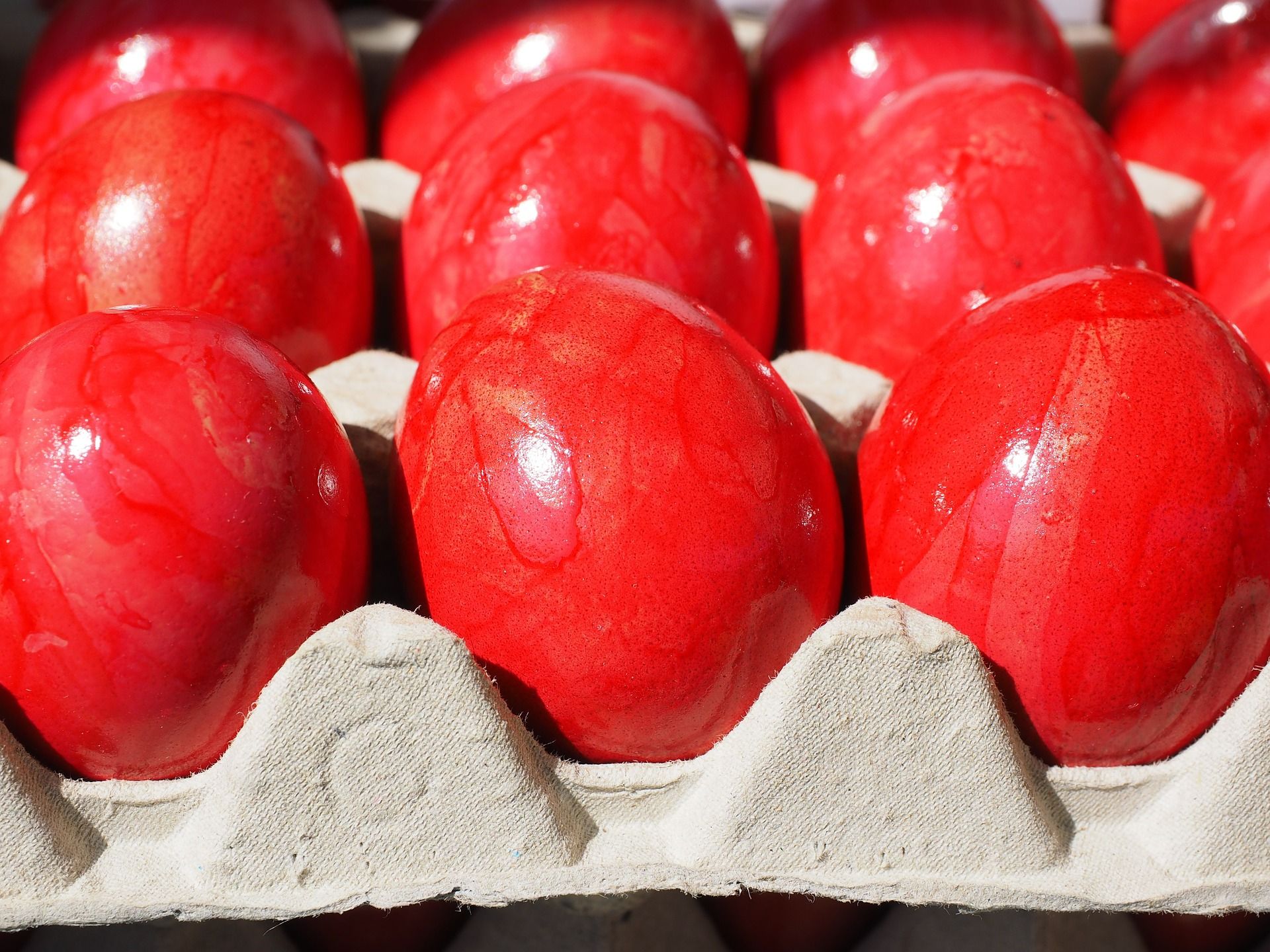
If you want to dye your own Greek Easter eggs, read my easy-way instructions in Dye red Easter eggs.
Greek Easter Traditions
The Megalo Paraskevi or Holy Friday, the Friday before Easter is a sad and quieter day. You will hear church bells ring from the early morning for the funeral of Jesus. There will not be any parties or music playing. On this day, people will stop working earlier and most shops and restaurants close in the afternoon. By tradition, the use of hammers, nails, and needles are to be avoided.
Greek Easter Holy Friday Traditions
Many devout people do not cook on Holy Friday. If they do, traditional foods are simple and only those that can be boiled in water (not oil) and seasoned with vinegar. Beans or thin soups like tahinosoupa (a soup made with tahini) are quite common. Traditionally, women and children take flowers to the church to decorate the Epitaphio (the symbolic bier of Christ). It is the day for the Service of Lamentation, which mourns the death of Christ.

The bier is decorated with flowers and bears the image of Christ. During the service, it is carried on the shoulders of the faithful in a procession that runs through the community or neighbourhood. Members of the congregation follow, carrying candles. Every church in Greece brings out its own funeral bier and parades it around the parish as a symbolic funeral procession.
People are silent and children carry flower petals. This procession is a special event to experience. If you find yourself near a church during Easter, do pay a visit. But make sure that you come early because it will be busy inside the church or church courtyard. After the procession, restaurants and homes will fill up as everyone will break their fasting in a traditional, Lent-friendly meal of seafood such as grilled vinegar octopus, calamari rings or prawns.
Greek Easter Holy Saturday
The next day is called Megalo Savato and is the last day of Lent. In the evening families will gather at their local church. Children will wear new clothes and hold their lambada, a special decorated Easter candle. These beautifully decorated lambadas are sold weeks before Easter time, you will see them hanging everywhere in shops in Greece. By tradition, the children have received this lambada candle (and their new clothes) from their godparents. The lambada can be found with simple decorations like ribbons or flowers but also with cartoon characters, dolls and superheroes.
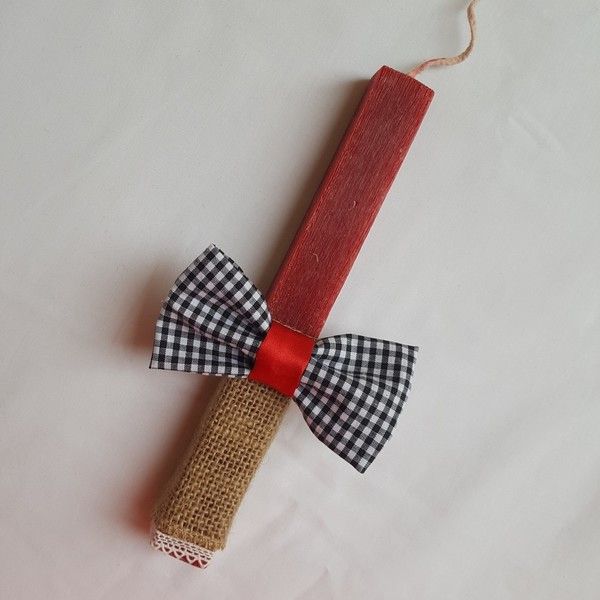
Anastasi
A few moments before midnight, the lights are switched off inside the churches. At midnight, when the priest sings the important words Christos Anesti! This moment is the start of Easter and the highlight for the Greek religion. People will be cheering and greeting each other. This is called the Anastasi. Everyone in the church wishes each other Christos Anesti ! (Christ Has Risen) If you are in Greece and someone wishes you Christos Anesti, you will reply Allithos Anesti’ (He Has Really Risen). A beautiful wish and tradition to participate in.
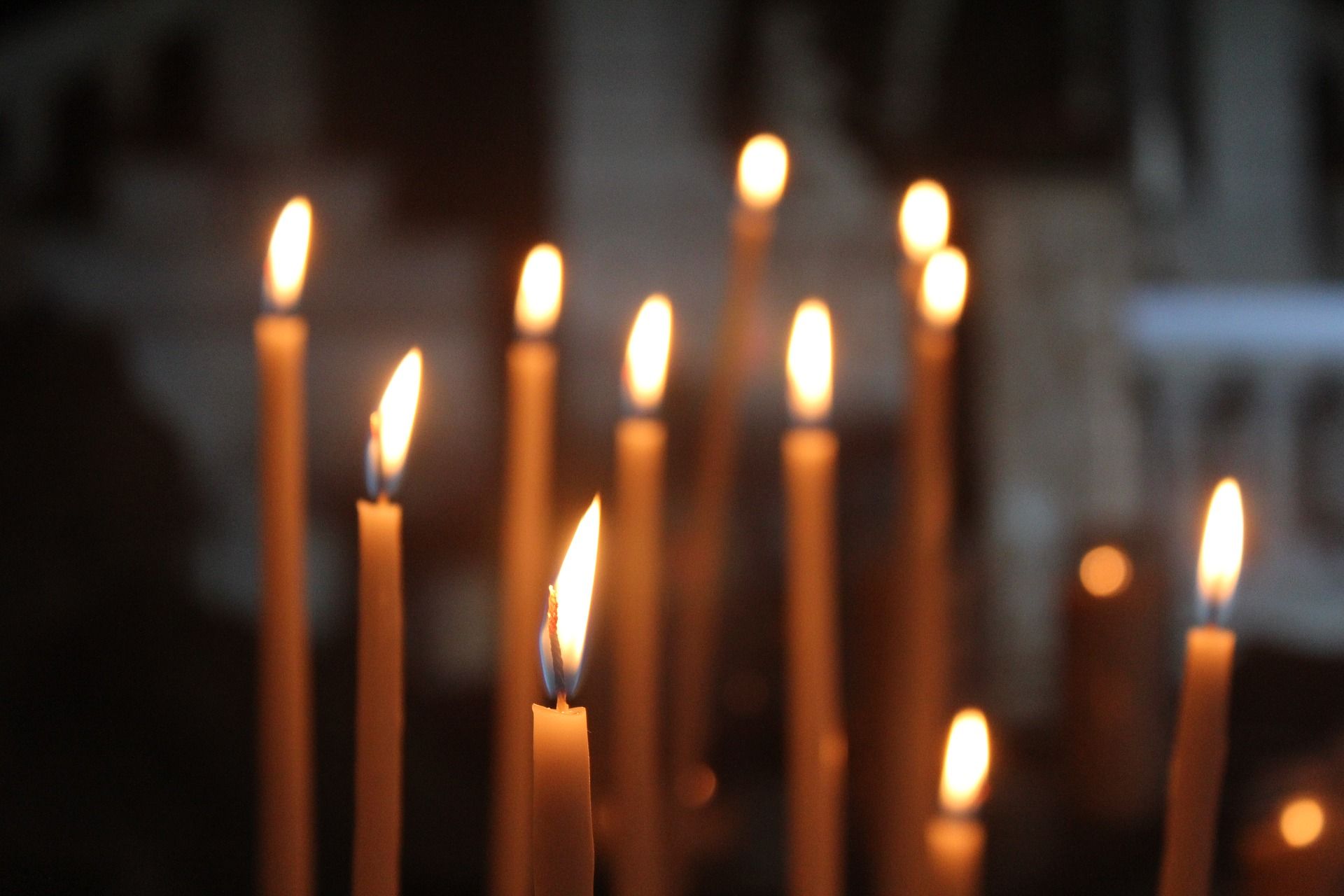
The priest also passes the flame (the light of the Resurrection) to those nearest him. The flame is then passed from person to person and it isn’t long before the church and courtyard are glowing with flickering candlelight. With their candles burning, people will go to their homes or to a tavern. They will bless their home with the flame of the candle by making a cross at the entrance or above the door. Tradition says that by making this cross the Evil Eye or bad luck will stay away. After that, at home or in the tavern, a traditional meal follows.
Greek Easter Soup
The traditional meal after the Anastasi is the Greek Easter soup called Magiritsa. This soup is made of lamb offal and is only available during Easter. Make sure you reserve a table for this special evening for a meal after midnight because restaurants will be fully booked.
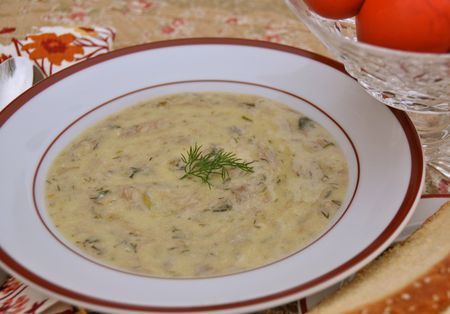
In many areas of Greece, including Athens, this moment of the Anastasi is celebrated with fireworks. If you are on an island you are more likely to see larger fireworks than in the city. In some parts of Greece, a symbolic Judas, a doll, is being put on fire. The first time that I saw a burning Judas doll was in Chania in Crete. I found this a rather impressive custom. The Judas burning is not an official part of the Easter liturgical cycle and can be found in different versions around Greece. In Hydra island, for example, I witnessed the symbolic Judas burning on Easter Monday.
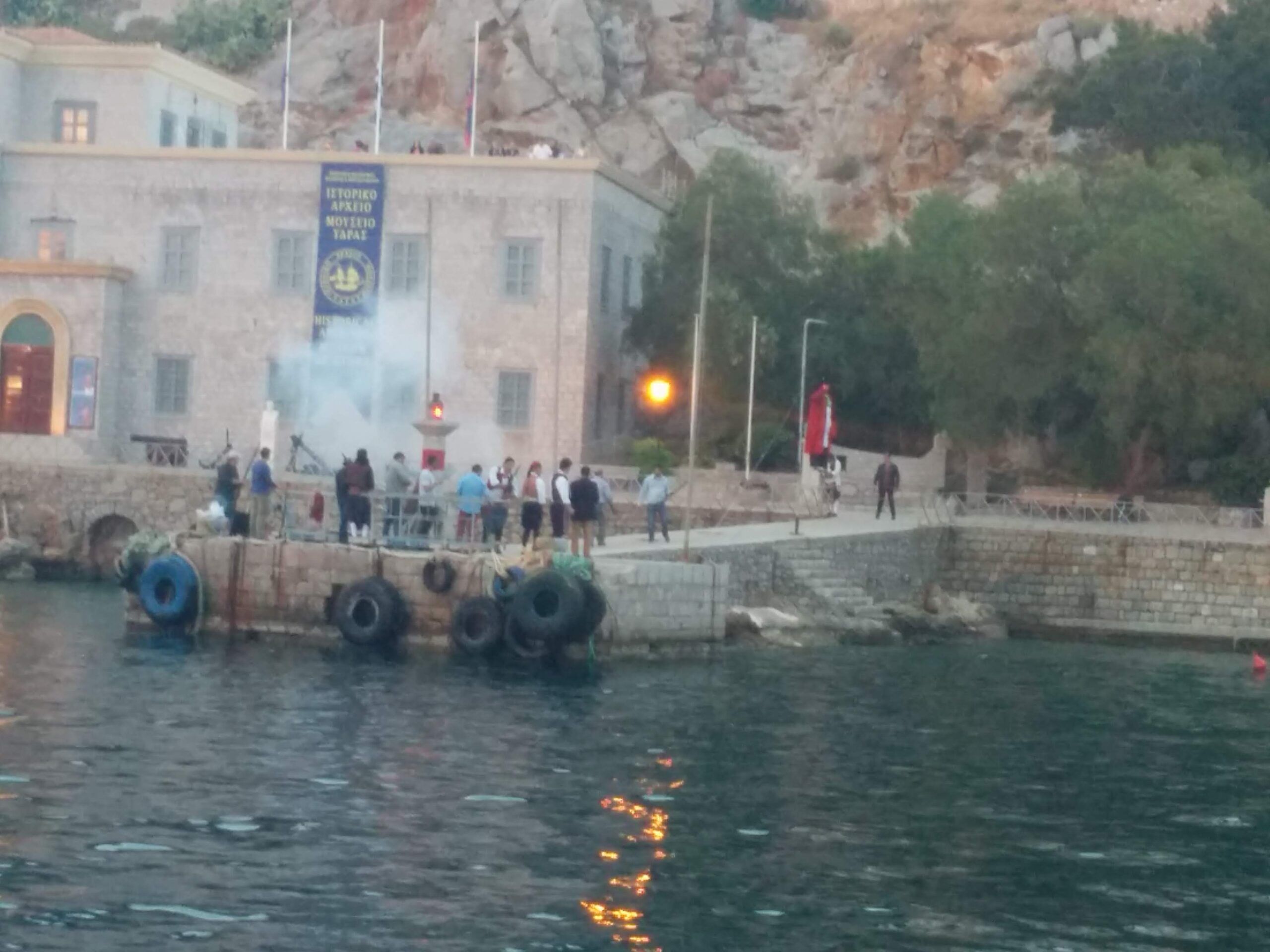
Tsougrisma
After the Anastasi, it is time to play the traditional egg cracking game or Tsougrisma. This game involves two players and the red Greek Easter eggs. Each player holds a red egg, and one taps the end of her/his egg lightly against the end of the other player’s egg. The goal is to crack the opponent’s egg. When one end is cracked, the winner uses the same end of her/his egg to try to crack the other end of the opponent’s egg. The player who successfully cracks the eggs of the other players is declared the winner and, it is said, will have good luck during the year.
Celebrating Greek Easter Sunday
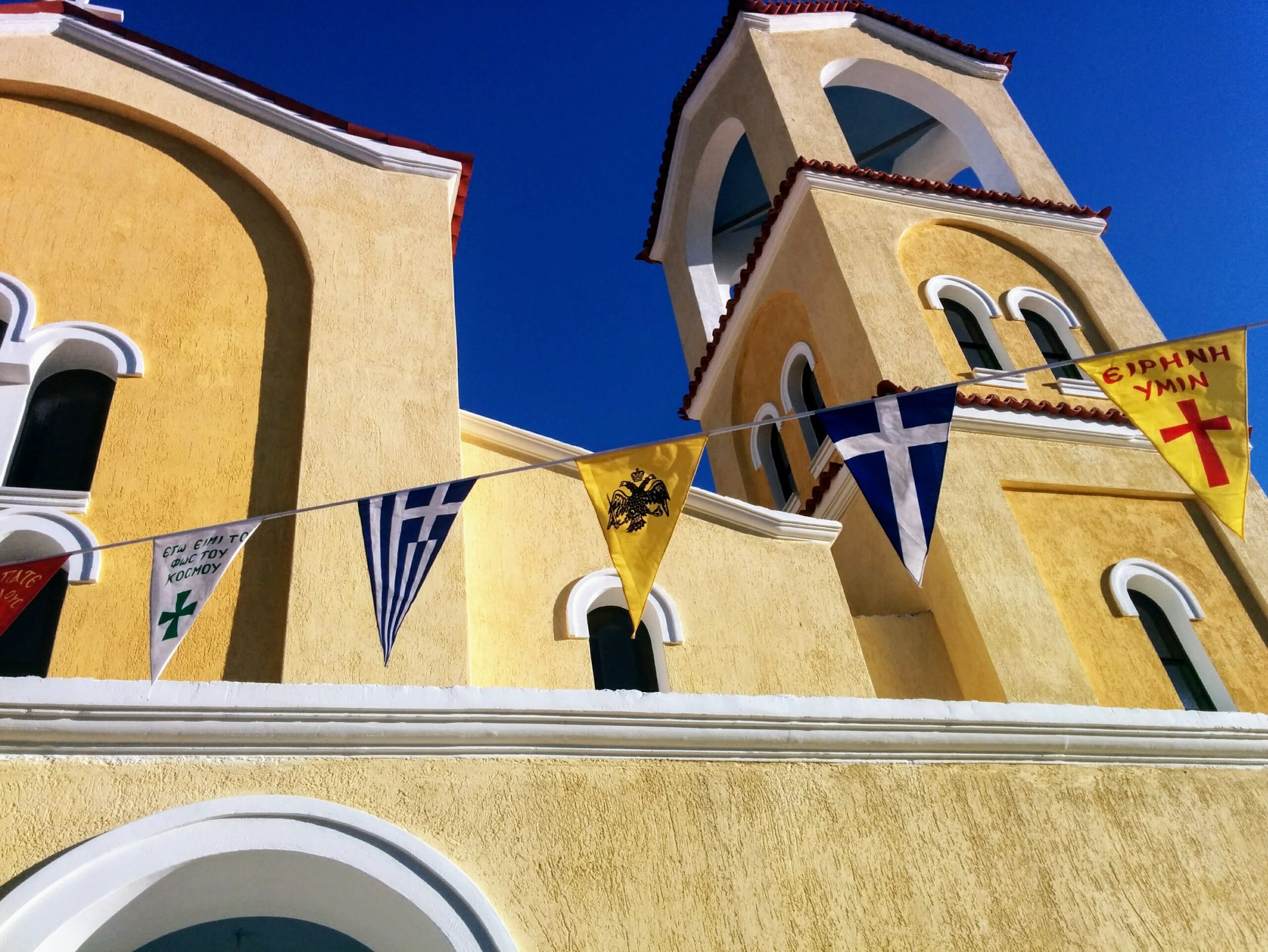
Greek Easter Sunday or Kyriaki tou Pascha, is a day of celebration. Families gather together all over Greece and they will eat, drink and dance together in their gardens and squares. Most people travel to their villages or their country house at Greek Easter. Most hotels and resorts offer Easter meals and special events and many are fully booked during this time.
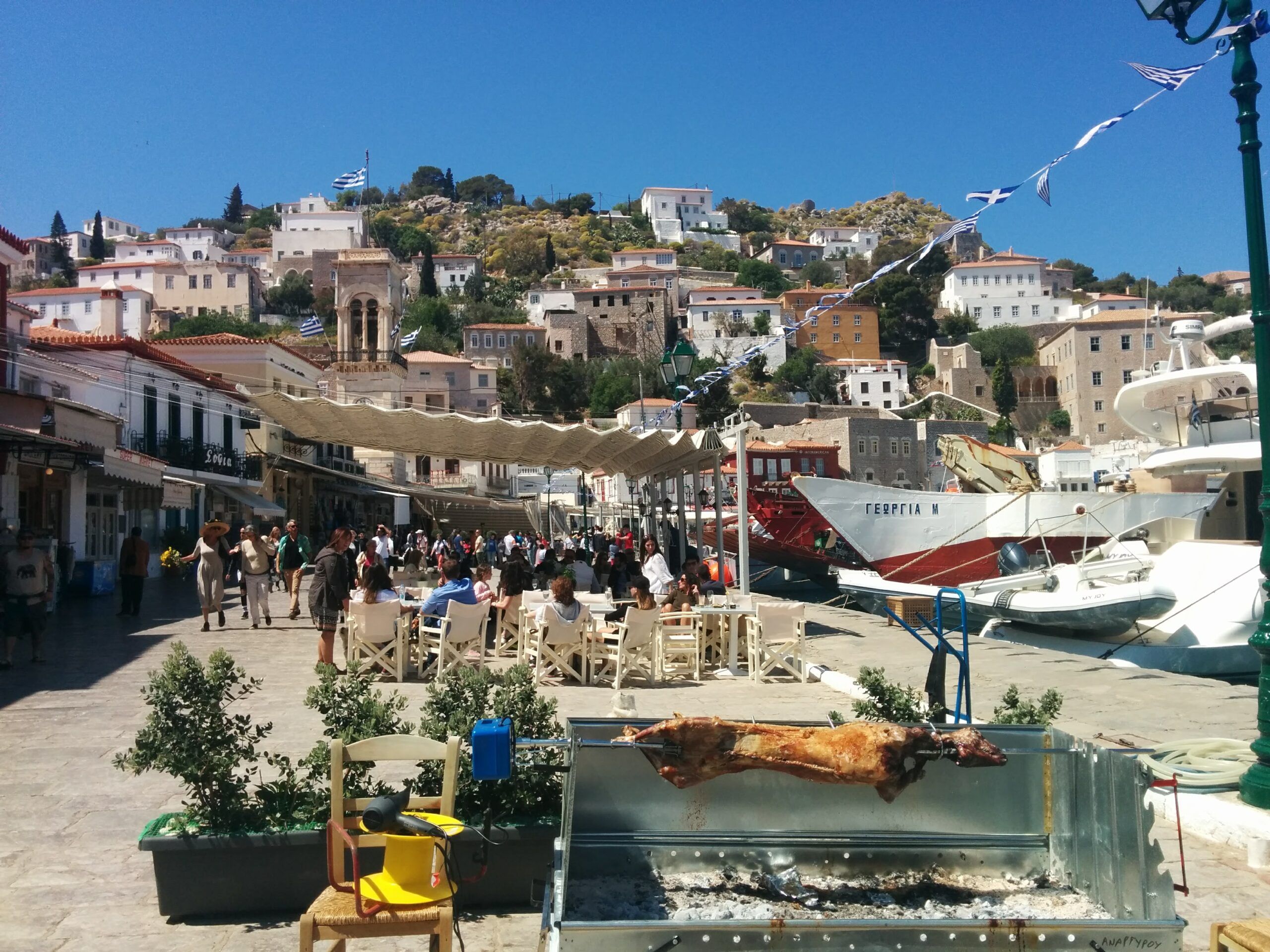
Greek Easter Food
The most important food in Greece on Easter Sunday is the roasted lamb on the spit. Everywhere around Greece, you will see and smell the grilled meat on Easter Sunday. Some people serve lamb meat in the oven or goat meat. Appetizers, such as Greek olives and tzatziki (a cucumber yoghurt dip), are served for guests to enjoy while watching the lamb cook on the spit. Ovens are filled with traditional accompaniments and all the trimmings, such as patates fournou(potatoes roasted with citrus and oregano) and spanakotyropita (spinach and cheese pie).
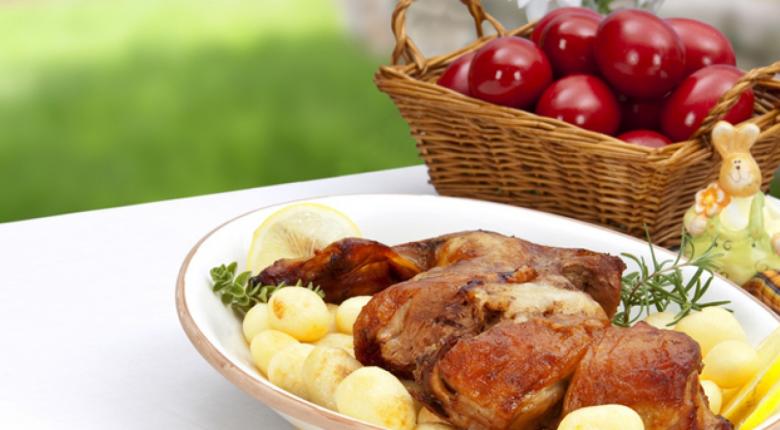
Great Greek wines, ouzo, and other drinks flow freely. Preparations for the meal turn into festive celebrations, even before the eating begins. The meal is a lengthy affair, often lasting long into the night, sometimes up to four hours. Many areas in Greece have their own local Easter dish; examples are the mastelo roast on the island of Sifnos, the sweet lazarakia bread buns in Astypalaia or the traditional kouloura cake and Virgin Mary cakes in Zakynthos.
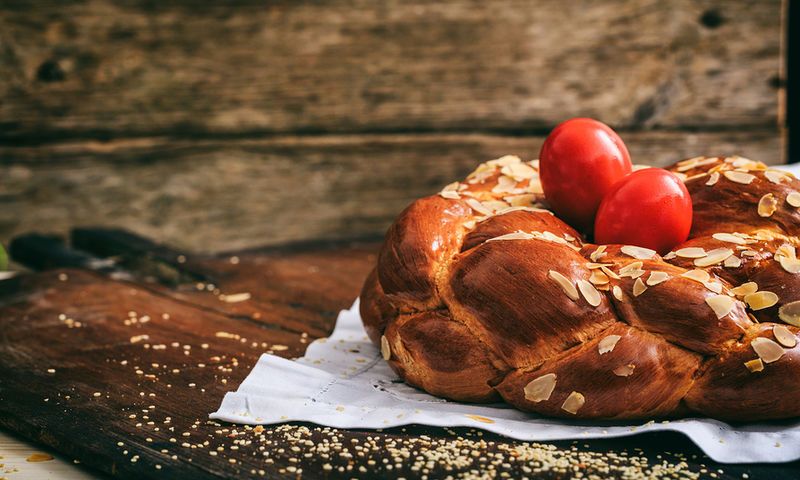
Tsoureki
Every household will also have Koulourakia – Easter cookies and a Tsoureki or Greek Easter bread. This soft traditional Easter bread in the shape of a braid is often decorated with a red Easter egg. This Easter bread is flavoured with mastic and mahlab and an absolute favourite to my children. Don’t miss a chance to try it when you are in Greece during Easter.
Easter Monday
Another national holiday, Easter Monday is a day to take things slowly. It may be more casual, but it is definitely a day filled with delicious leftovers and a time to relax from all the previous celebrations.
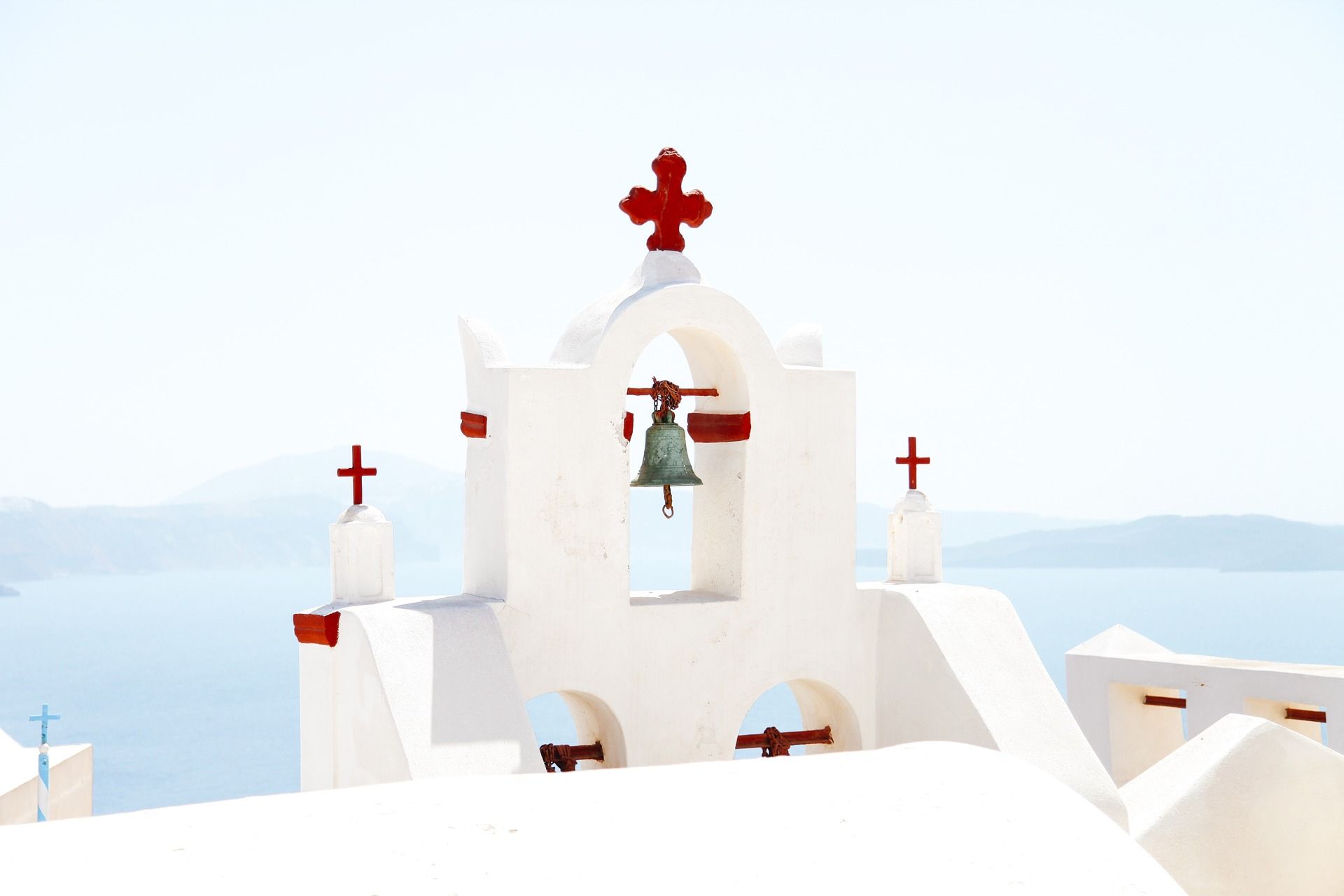
Local Greek Easter Traditions
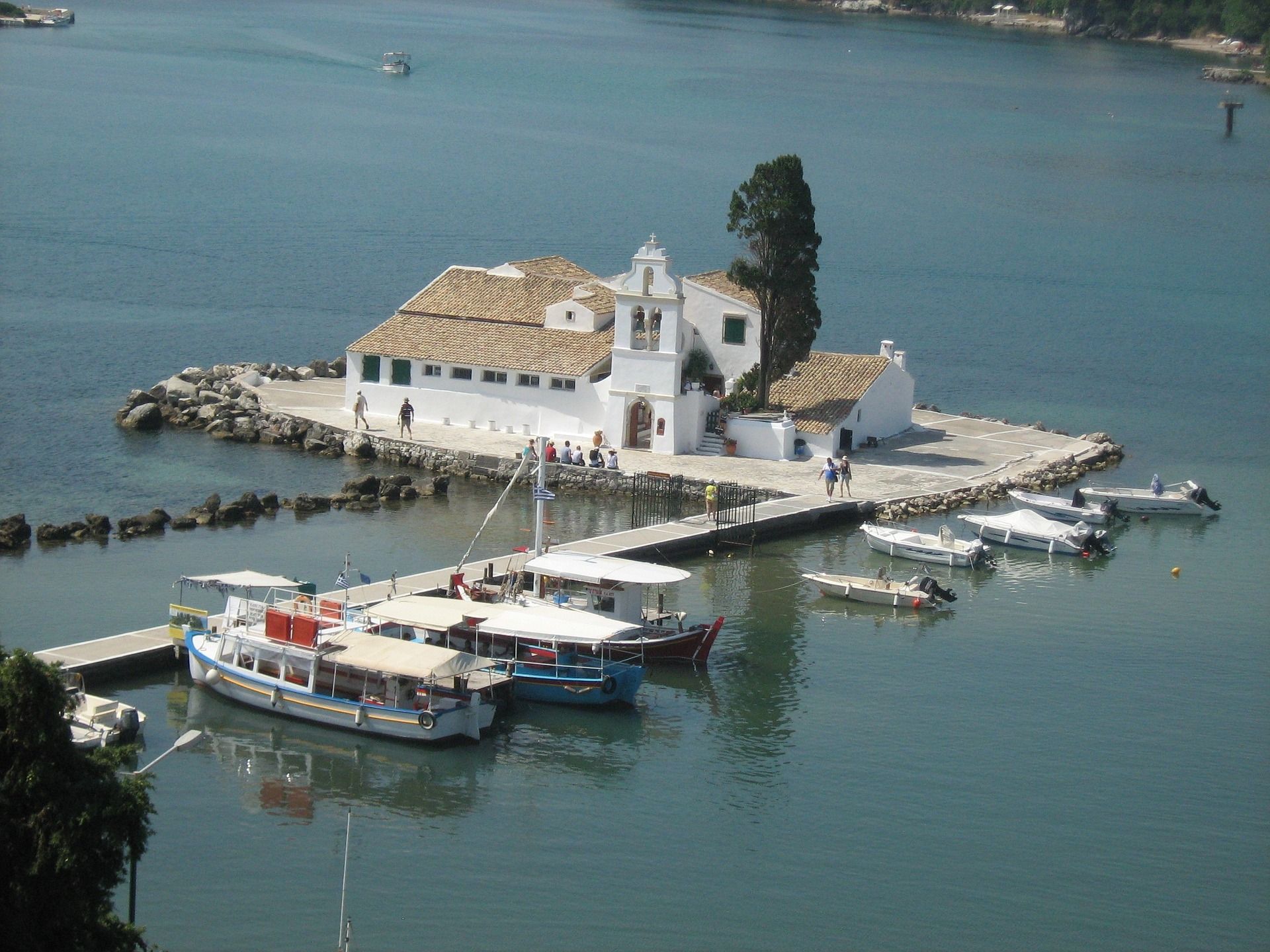
Corfu
The most famous Greek Easter traditions are the celebrations at the Ionian island of Corfu. Easter in Corfu is characterized by music. The island organises concerts of classical music and opera and music can be heard all over the island. Unlike in the rest of Greece, the Easter procession takes place on Holy Saturday morning.
On Holy Saturday it rains “botides” – huge and heavy clay jars thrown onto the streets from people’s balconies. Suffice to say, Easter on Corfu is something you should experience at least once in your lifetime.
For family travel to Corfu, check 10 things to do in Corfu with Kids
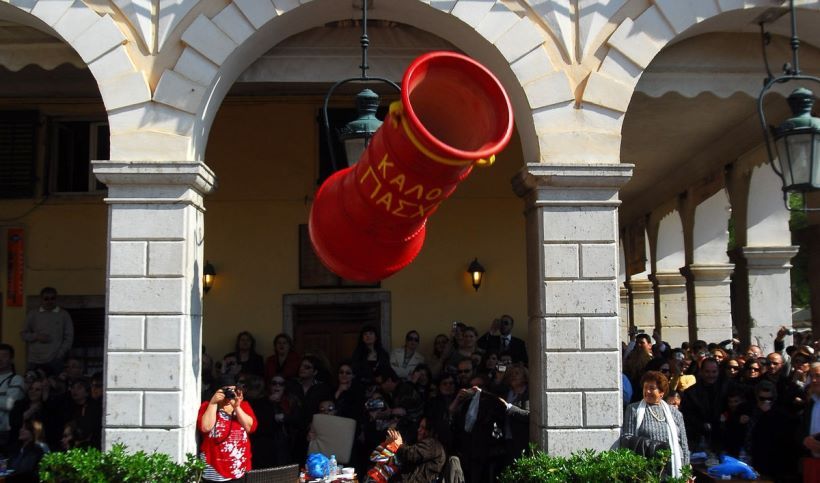
Syros
Syros has some of the most beautiful Orthodox and Catholic churches in Greece. Easter anywhere in Greece is by definition special, but Syros with its classic old town and impressive churches can boast something extraordinary. On Good Friday the elegant homes of Ermoupoli, Syros’ main town, are all illuminated creating the atmosphere of the 19th century.
Patmos
An island with deep religious roots, Patmos encapsulates Easter in a way that no other place can. Each Easter, on the night of The Resurrection, the Holy Light makes its way from Jerusalem all the way to Patmos. Making the Anastasi in Patmos unforgettable.
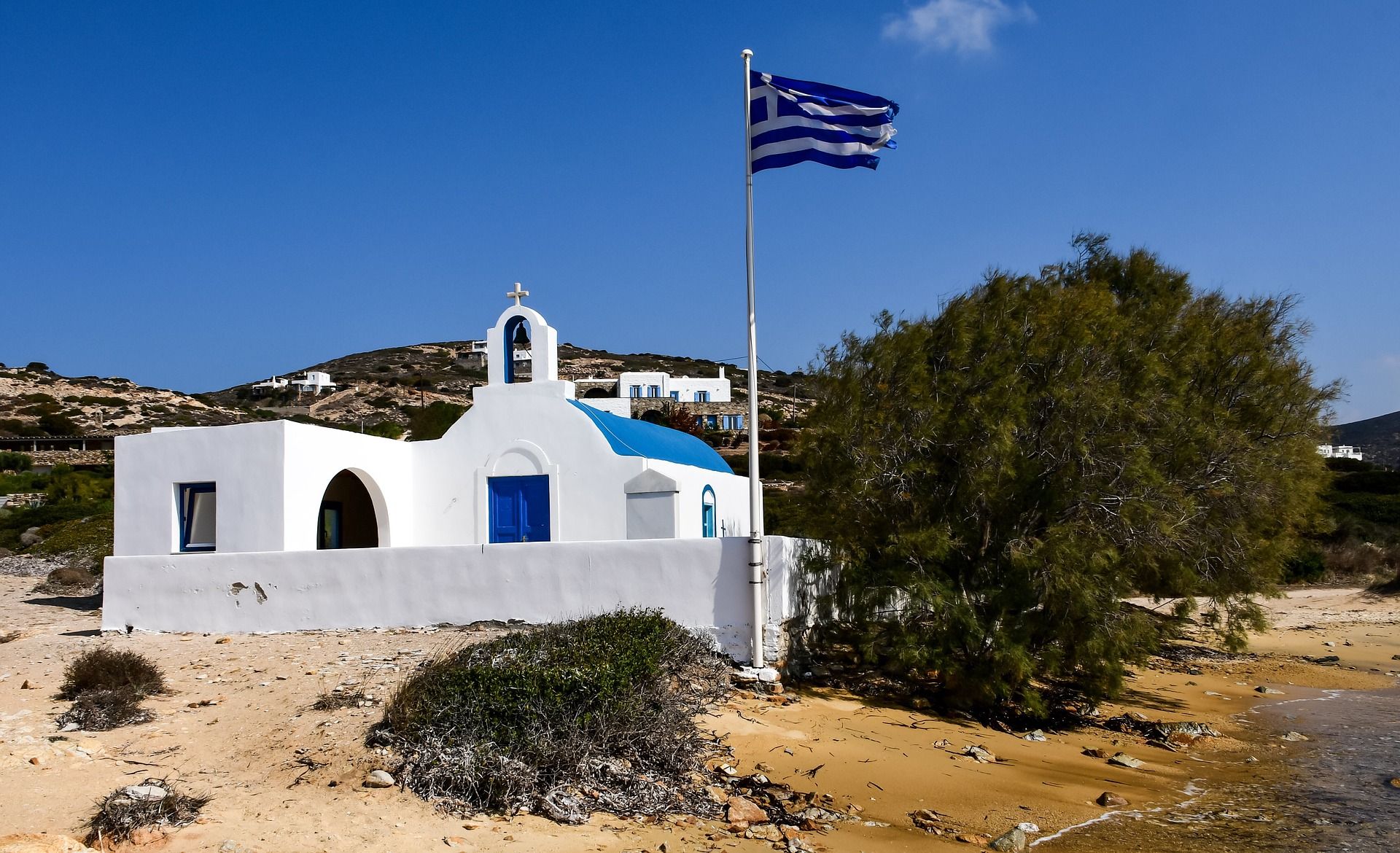
Paros
Paros island recreates the story of Christ during Easter. On Good Friday special performances start in the village of Marpissa. During the procession, the entire village re-enacts the life of Jesus, his death and resurrection. On the Saturday of Lazarus, Holy Saturday, people in Paros bake Lazarakia or Little Lazaruses. These are small, spiced buns shaped like a man representing Lazarus. A unique custom that can only be found on this island.
Santorini
The Santorini Easter is famous for the events at Pyrgos village on Good Friday. On this special day, the island locals place candles and cans with fires everywhere along all the streets and rooftops of Santorini’s special houses. The countless small lights create a magnificent atmosphere and are a breathtaking sight for visitors and locals alike.
For family vacation tips for Santorini, check out Travel Santorini, Greece with kids and Best Family Hotels in Santorini
Hydra
Hydra celebrates Easter in a unique way because the Epitaph is carried into the sea. This happens on the evening of Good Friday at Kamini beach near Hydra town. The Hydriots do this to sanctify the water and to guarantee sailors a safe journey. The custom was for the first time started in Kaminia in the year 1923 and since then the custom is repeated every year, according to tradition. The custom was started by sponge divers of Kaminia whose sponge boats departed after the Sunday of the Holy Cross and returned close to the day of the Exaltation of the Holy Cross.
Looking for travel tips and family hotels in Hydra? Check out my post Hydra island Greece holiday with Kids
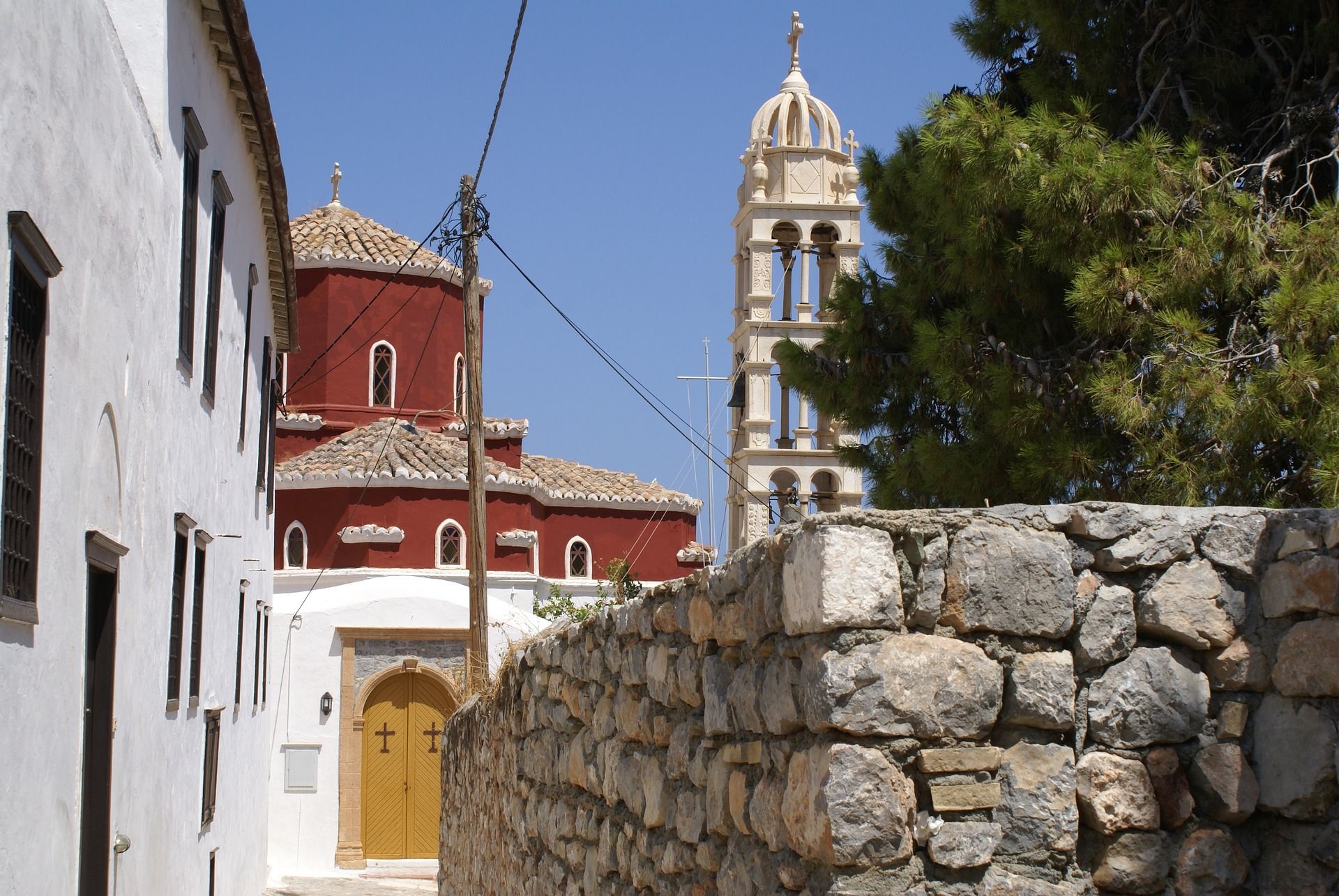
Leonidio, Peloponnese
In Leonidio, more than 1,000 balloons are released into the Easter sky on the night of the Resurrection, making for a delightful spectacle, in a custom that is said to have been brought back from the Far East by local sailors. Their construction begins in February with the cutting of the reeds that will be used. Then, sheets of paper, usually red or orange, must be carefully glued to the reed framework. The number of sheets depends on the size of the balloon, roughly 16 for the smaller ones and about 34 for the larger versions. The work requires a degree of skill, but in Leonidio they learn from an early age. Even the elementary school devotes one day to balloon construction and the local kids traditionally fly their creations on the Friday night before Lazarus Sunday.
What is Easter called in Greek?
Easter is called Pascha. Have you ever celebrated Easter in Greece? We wish you a Happy Easter or Kalo Pascha!
More articles about Greek Culture
If you liked this post about Greek Easter, take a look at the other ones:
- Kyra Sarakosti or Lent
- Greek Carnival
- Apokries Greek Carnival in Athens
- May Day
- Clean Monday traditions in Greece
- Christmas in Greece with kids
- New Year Traditions in Greece
- Movies about Greece
